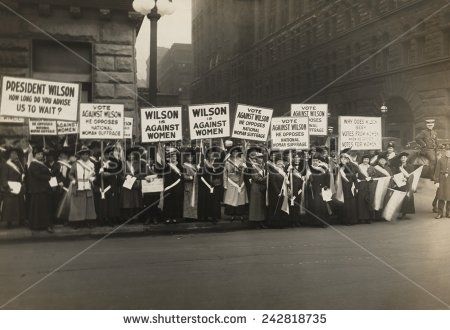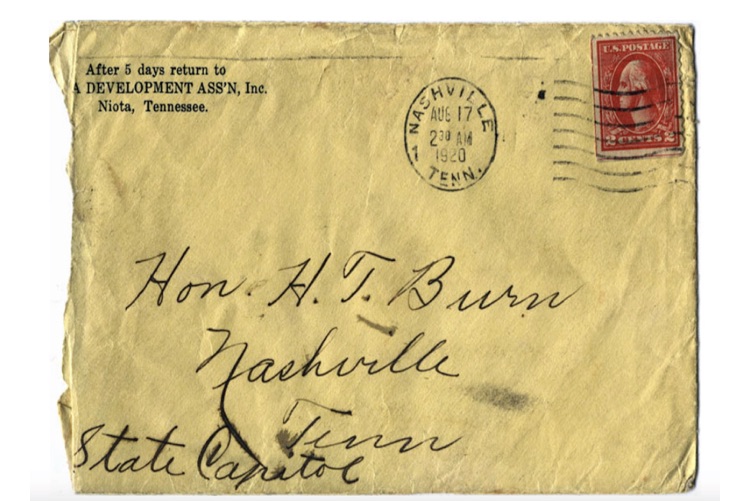A century ago this month, after a many decades long fight, the United States ratified the 19th Amendment, finally securing a woman’s right to vote. Well, white women anyway. The fight would continue for others.

We are all familiar with Suffragettes like Susan B. Anthony, Alice Paul, Lucy Burns, Carrie Chapman Catt, and “General” Rosalie Jones who were at the forefront of the fight for women’s voting rights through public demonstration and political advocacy, often facing arrest, jail time, force feeding during hunger strikes, physical violence and wide-spread harassment. It seems even President Trump is familiar with Susan B. Anthony as he pardoned her on August 18, 2020. She was arrested and charged in 1872 for voting illegally as a woman. You can read Ms. Anthony’s response from the grave thanks to Lynn Sherr and Ellen Goodman, co-hosts of She Votes! Podcast. Turns out, he can keep his pardon! The Susan B. Anthony Museum also rejected the pardon, proposing instead, “if one wants to honor Susan B. Anthony today, a clear stance against any form of voter suppression would be welcome.”
The right of citizens of the United States to vote shall not be denied or abridged by the United States or by any State on account of sex.
19th Amendment
When federal law makers finally passed the 19th Amendment in June of 1919, my mother was two months old. On her first birthday, 10 months later, it still hadn’t become law. The Amendment required ratification by three-fourths of U.S. states and by the summer of 1920, only 35 states had seen the light. The magic number was 36. That takes us to little ole Tennessee and a world-class mothering moment.

My sister recently introduced me to Harry T. Burn, a 24-year old Republican member of the Tennessee House of Representatives, and his mother, Febb Burn, a college educated widow who read three newspapers a day and believed her mind was the equal of any man’s. The State Capitol in Nashville was a frenzied hot mess on August 18, 1920. With Tennessee forced into the limelight, supporters from both sides of the suffrage issue had camped out at a hotel across the street from the Capitol. Their intense lobbying efforts became known as the original War of the Roses. Most representatives entered the Capitol that morning with roses in their lapel signifying the choice they planned to make, yellow to ratify, red to deny. The all-male Tennessee legislature twice voted that morning to table the ratification decision and both times the vote was tied 48 to 48. They had no choice but to vote on the amendment. The state Senate had already approved the amendment, but a tie in the House would mean defeat.

Harry T. Burn had twice voted to table the amendment, all while wearing a red rose in his lapel. This is where it really gets good. In his suit pocket was a letter delivered that morning from his mother, Febb Burn. Her letter included updates on the farm and the family, news she thought her son might like to know. There was no brow beating or condemnation in her six-page missive, simply a few gentle thoughts from Mama in which she asked him to “be a good boy” and vote for the amendment.
“Hurrah, and vote for suffrage, and don’t keep them in doubt.”
Yes, Harry ended up voting Aye that fateful day, later explaining, “I knew that a mother’s advice is always safe for a boy to follow and my mother wanted me to vote for ratification.” Suffragists had lobbied Burn, but he came from a conservative district so his vote in favor of ratification came as a surprise to everyone. Harry was still wearing his red rose when he fled to the attic of the state capitol and stayed there until the frenzied crowd downstairs dispersed.

For every leader in the Suffragette Movement, there were thousands of others whose names and stories I’ll never know who picketed the White House through a world war and a flu pandemic, organized marches and protests. Many of these heroes also suffered great indignations and sacrificed to allow their descendants to now exercise their right to cast their ballots and participate in the democratic process. What I do know is that this November we can and must honor our foremothers and VOTE!
C’est la vie.

Excellent!
LikeLike
Very interesting post! Thank you.
LikeLike
Good morning, Betty. All the different stories from that time are fascinating. I love the quote by Susan B. Anthony -The older I get, the greater power I seem to have to help the world. I am like a snowball – the further I am rolled the more I gain.
LikeLiked by 1 person
I recently read the book, “Finding Dorothy.” The connection to the suffragettes was very interesting! Thanks again for your post.
LikeLike
Thanks for the book recommendation. I’ve added it to my list!
LikeLiked by 1 person
I hope you enjoy the book!
LikeLike
From what I can understand from my Facebook newsfeed people who normally don’t bother to vote are determined to get their vote in this time around. That was a nice post and as always I get annoyed at what just ‘should be’ to have to fight for your right every step of the way.
LikeLike
Yes, two steps forward, one step back. And I hope you are right about voter turnout, it is certainly needed. Hope your week holds some fun in it!
LikeLiked by 1 person
Interesting and informative – a great glimpse into history’s details most of us don’t know. Long live the memory of Febb Burn – may her tribe increase 😉 Family and farm first; then, oh, btw, vote for suffrage, and “don’t keep them in doubt.” APPLAUSE!!
LikeLike
Thanks! There are so many fascinating stories, but I think perhaps because I am the mother of boys, this one really stuck with me. Yes, we need more Febb Burns in the world.
LikeLike